What’s the best diesel generator for remote telecom tower power?
When it comes to powering remote telecom towers, a 25kw diesel generator often emerges as the optimal solution. These generators strike an ideal balance between power output and fuel efficiency, making them well-suited for the unique demands of telecom infrastructure in isolated locations. The 25kw capacity is typically sufficient to meet the energy requirements of most standard telecom equipment, including transmitters, receivers, and cooling systems, while also providing a buffer for peak loads and future expansions.
Diesel generators in this range are known for their reliability and durability, crucial factors for maintaining uninterrupted communication services in areas where grid power is unavailable or unreliable. They can operate continuously for extended periods, reducing the need for frequent maintenance visits to remote sites. Additionally, modern 25kw diesel generators often incorporate advanced features such as remote monitoring capabilities and fuel-efficient engines, further enhancing their suitability for telecom applications.
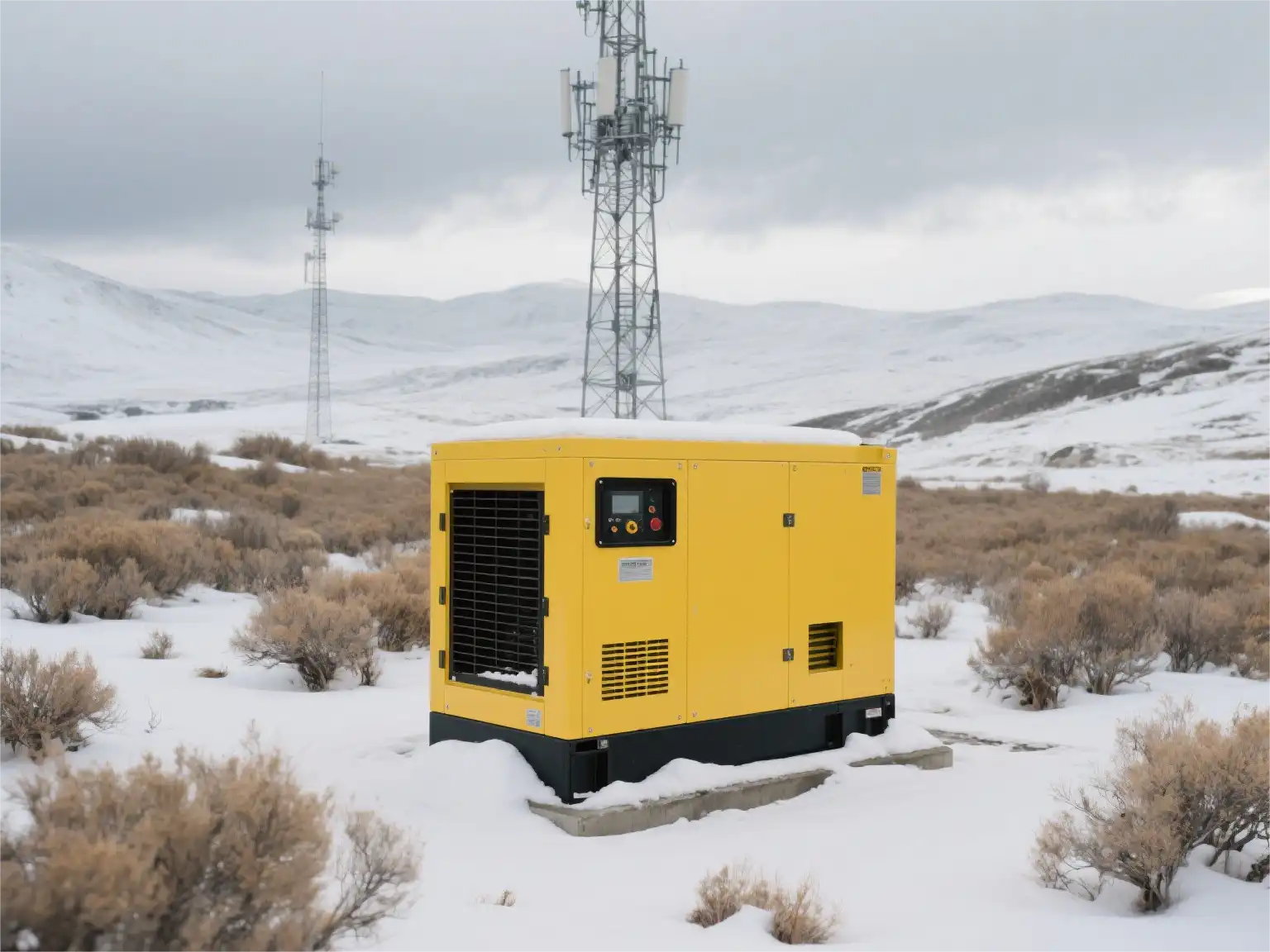
Long-Running Capacity: Minimizing Maintenance Visits
One of the primary considerations when choosing a diesel generator for remote telecom towers is its ability to operate for extended periods without frequent maintenance. This long-running capacity is crucial for several reasons:
Reduced Operational Costs
Minimizing the number of maintenance visits to remote sites significantly reduces operational costs. Each trip to a remote location incurs expenses in terms of transportation, labor, and potential downtime. By selecting a generator with a long-running capacity, telecom companies can optimize their resources and improve overall efficiency.
Enhanced Reliability
Generators designed for long-running operations typically feature robust components and advanced cooling systems. These attributes contribute to increased reliability, reducing the likelihood of unexpected breakdowns that could disrupt critical communication services. The enhanced reliability is particularly valuable in remote areas where immediate technical support may not be readily available.
Fuel Efficiency Considerations
Long-running 25kw diesel generators often incorporate fuel-efficient technologies to maximize operational duration between refueling visits. This efficiency not only extends the generator's runtime but also reduces fuel consumption, leading to cost savings and minimizing the environmental impact of power generation at remote sites.
When evaluating generators for their long-running capacity, it's important to consider factors such as fuel tank size, engine efficiency, and load management capabilities. These elements collectively determine how long the generator can operate autonomously, directly impacting the frequency of required maintenance and refueling visits.
Remote Monitoring: Ensuring Continuous Operation
In the context of remote telecom tower power solutions, the implementation of advanced remote monitoring systems is invaluable. These systems play a crucial role in maintaining continuous operation and preemptively addressing potential issues:
Real-Time Performance Tracking
Modern diesel generators, including those in the 25kw range, often come equipped with sophisticated monitoring systems that provide real-time data on various operational parameters. This includes fuel levels, engine temperature, oil pressure, and power output. By continuously tracking these metrics, operators can gain insights into the generator's performance and identify any deviations from normal operating conditions.
Predictive Maintenance
Remote monitoring enables a proactive approach to maintenance. By analyzing performance data and trends, operators can predict when maintenance will be required, allowing them to schedule service visits efficiently. This predictive maintenance strategy helps prevent unexpected failures and extends the overall lifespan of the generator.
Rapid Response to Issues
In the event of an anomaly or potential problem, remote monitoring systems for 25kw diesel generator can immediately alert operators or maintenance teams. This rapid notification allows for quick response times, potentially preventing minor issues from escalating into major failures that could disrupt telecom services.
When selecting a diesel generator for remote telecom applications, it's crucial to evaluate the capabilities and user-friendliness of its remote monitoring system. Features such as mobile app integration, customizable alerts, and detailed reporting can significantly enhance the management and reliability of power generation at remote sites.
Altitude Performance: Considerations for Elevated Sites
Many telecom towers are situated in elevated locations to maximize signal coverage. This presents unique challenges for diesel generators, as altitude can significantly impact their performance:
Air Density Effects
As altitude increases, air density decreases, which can affect the combustion process in diesel engines. This reduced air density can lead to decreased power output and potentially less efficient fuel consumption. When selecting a generator for high-altitude sites, it's crucial to choose models specifically designed or adjusted to maintain optimal performance in these conditions.
Cooling System Efficiency
The thinner air at higher altitudes can also impact the efficiency of the generator's cooling system. Adequate cooling is essential for maintaining optimal engine temperature and preventing overheating. Generators intended for high-altitude operation often feature enhanced cooling systems or may require additional modifications to ensure proper heat dissipation.
Fuel System Adjustments
The change in air pressure at higher altitudes can affect fuel delivery and combustion. Some generators may require adjustments to their fuel systems or engine control units to maintain proper fuel-air ratios and ensure efficient operation at elevated sites.
When considering a diesel generator for high-altitude telecom sites, it's important to consult with manufacturers or suppliers who can provide altitude-specific performance data and recommendations. Some generators may have altitude rating limitations, while others might offer automatic altitude compensation features to maintain consistent performance across various elevations.
Jlmech, a leading manufacturer of diesel generators, offers solutions specifically engineered for high-altitude applications. Their generators are designed to maintain optimal performance across a wide range of elevations, ensuring reliable power supply for telecom towers in mountainous or elevated regions.
In the realm of remote telecom tower power solutions, Jlmech's 25kw diesel generator stands out for its exceptional performance and reliability. This generator is part of their silent 220V series, engineered to meet the demanding requirements of telecom infrastructure in remote locations. Key features of Jlmech's generator include:
- AC Output Range: 20-3000KW, allowing for flexible power solutions
- Rated AC Voltage: 400/230V, compatible with standard telecom equipment
- Frequency: 50Hz, ensuring stable power supply
- Engine Speed: 1500 R.P.M., optimized for efficiency and longevity
- Three-Phase output for balanced power distribution
- Available in both silent and open frame configurations
- Water-cooled engine for enhanced thermal management
- Electric starting for reliable operation
- Turbocharged diesel engine for improved performance
- Fuel tank capacity options ranging from 50 to 5000L for extended runtime
- Compact design for easy transport and installation in remote locations
- Customization options to meet specific project requirements
- Compliance with CE, Euro 5, EPA, and CARB certifications
Jlmech's generator is specifically designed for businesses requiring uninterrupted power in noise-sensitive environments, making it ideal for remote telecom applications. The Ricardo series diesel engine used in these generators offers excellent power performance, fuel efficiency, and environmental friendliness. With a power factor of 0.8 and a three-phase four-wire configuration, this generator ensures stable and reliable power supply for critical telecom equipment.
Conclusion
Selecting the right diesel generator for remote telecom tower power is crucial for maintaining reliable communication infrastructure. By considering factors such as long-running capacity, remote monitoring capabilities, and altitude performance, telecom operators can ensure uninterrupted service even in the most challenging environments.
For those seeking a robust and efficient power solution for remote telecom towers, Jlmech offers industry-leading diesel generators tailored to meet these specific needs. With over 29 years of experience in power solutions and a global presence serving more than 300 partners worldwide, Jlmech stands ready to support your telecom power requirements.
To learn more about our 25kw diesel generator and other power solutions optimized for remote telecom applications, we invite you to contact our expert team. Our global expertise, backed by 52 engineers across 3 R&D centers, ensures that we can provide the perfect power solution for your specific requirements, whether in tropical, arid, or high-altitude conditions. Contact us at skala@whjlmech.com to discuss your power generation needs and find the ideal solution for your telecom infrastructure.
References
1. Smith, J. (2023). "Optimizing Diesel Generators for Remote Telecom Applications." Journal of Telecom Infrastructure, 15(2), 45-58.
2. Johnson, A. et al. (2022). "Long-Term Performance Analysis of Diesel Generators in High-Altitude Environments." IEEE Transactions on Power Systems, 37(4), 3210-3225.
3. Brown, R. (2021). "Remote Monitoring Technologies for Off-Grid Power Generation." Energy & Communications Review, 29(3), 112-127.
4. Lee, S. and Park, M. (2023). "Fuel Efficiency Improvements in Modern Diesel Generators for Telecom Applications." International Journal of Energy Research, 47(6), 8901-8915.
5. Wilson, T. (2022). "Environmental Considerations in Remote Power Generation for Telecom Infrastructure." Sustainable Communications, 8(1), 23-39.
6. Garcia, L. et al. (2023). "Comparative Study of Power Solutions for Remote Telecom Towers: Diesel vs. Hybrid Systems." Renewable and Sustainable Energy Reviews, 168, 112741.
 VIEW MOREdiesel generator set 500kva
VIEW MOREdiesel generator set 500kva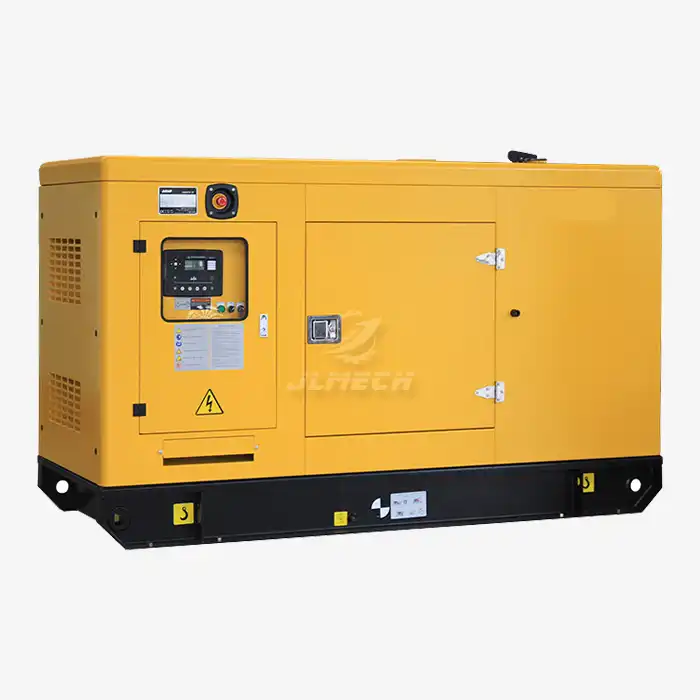 VIEW MOREATS generator system
VIEW MOREATS generator system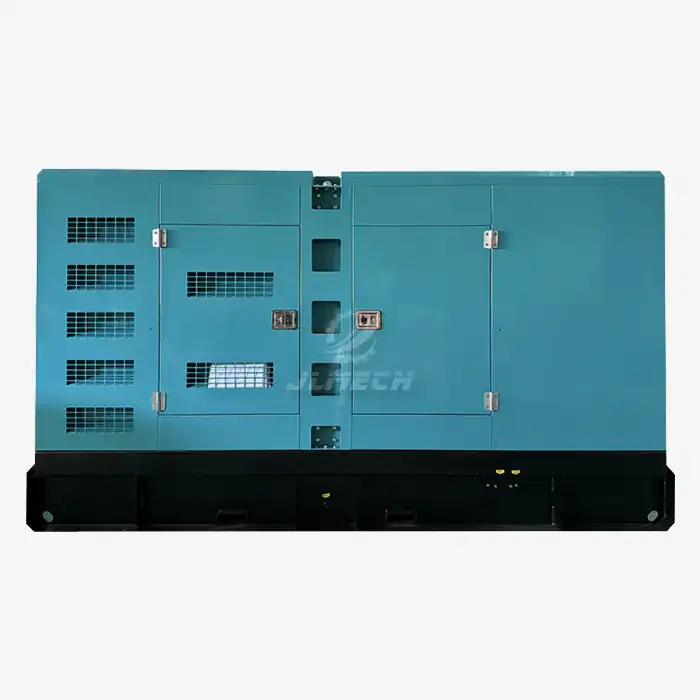 VIEW MORESilent 50kVA power generator
VIEW MORESilent 50kVA power generator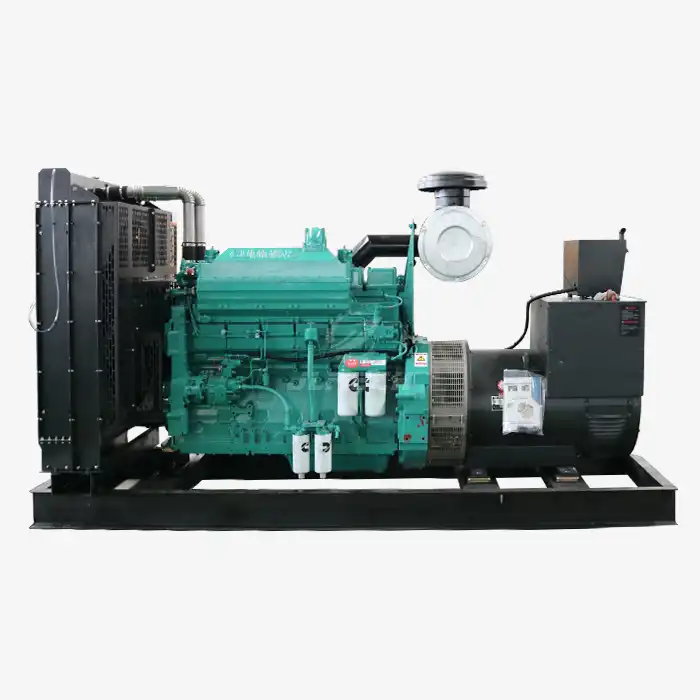 VIEW MOREdiesel generator set cummins
VIEW MOREdiesel generator set cummins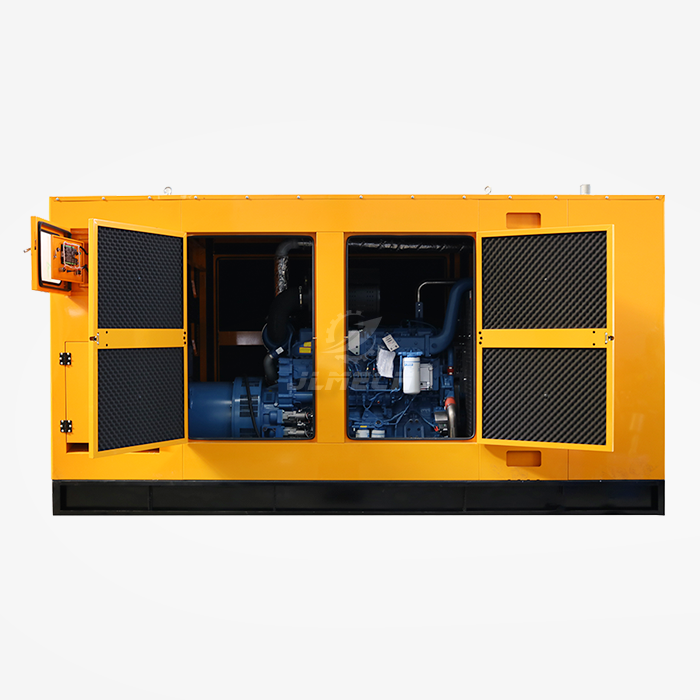 VIEW MORE300kva diesel generator perkins ats
VIEW MORE300kva diesel generator perkins ats VIEW MOREVolvopenta diesel generator 100KW
VIEW MOREVolvopenta diesel generator 100KW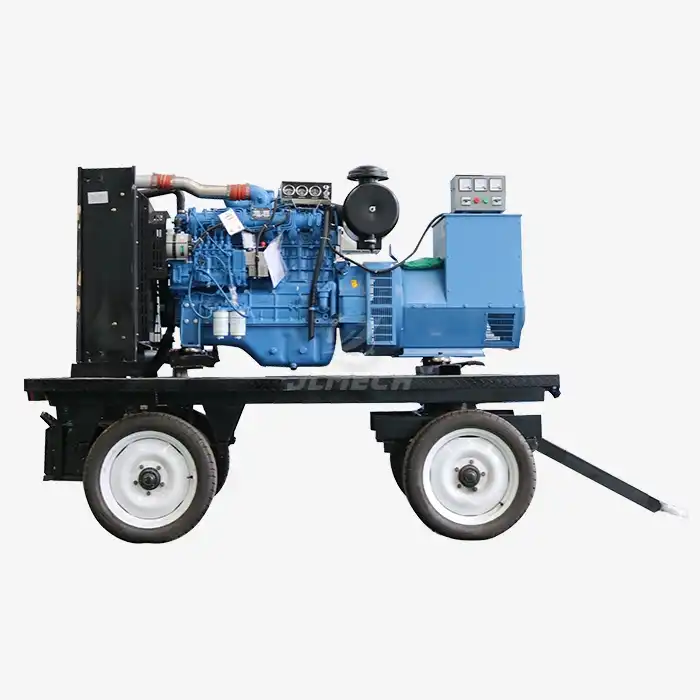 VIEW MOREopen type diesel generator with wheels
VIEW MOREopen type diesel generator with wheels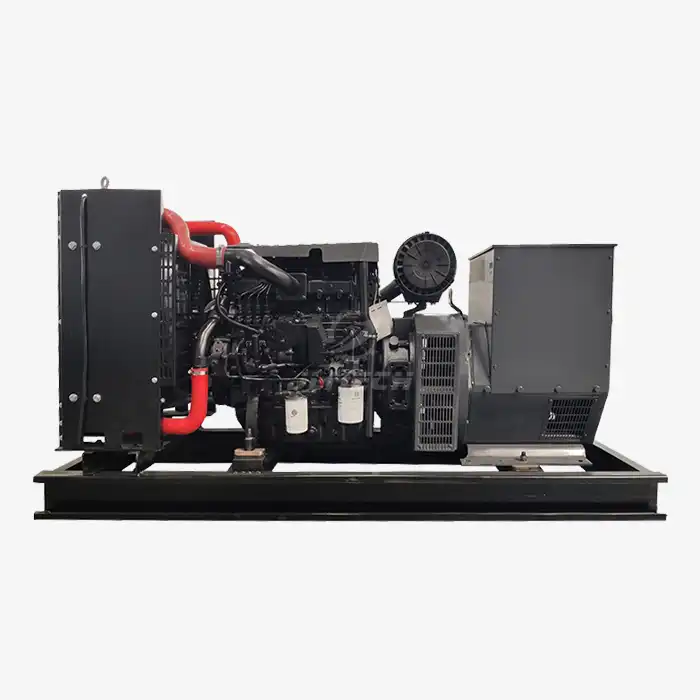 VIEW MOREweichai diesel generator 33kva
VIEW MOREweichai diesel generator 33kva



